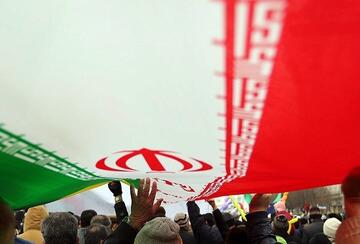APARC Newsletters
Sign up to receive updates from our experts and programs delivered to your inbox.

Kotkin’s research interests include authoritarianism, geopolitics, global political economy, and modernism in the arts and politics.

Research Assistant Spotlight: Jerome He Examines Great Power Competition with Oriana Skylar Mastro
Political Science major Jerome He ‘24, spent the summer assisting APARC Center Fellow Oriana Skylar Mastro. He leveraged the opportunity to expand his knowledge of Chinese security issues and refine his research acumen. We spoke with He about his experience as a research assistant and his time working for Dr. Mastro.

In the first study to evaluate pay-for-performance implementation at a hospital system in Taiwan, APARC’s Asia Health Policy Program Director Karen Eggleston and co-authors reveal how incentive-based measures to ensure continuity and quality of care resulted in positive health outcomes.

The Center offers a suite of fellowships for Asia researchers to begin fall quarter 2023. These include postdoctoral fellowships on contemporary Japan and the Asia-Pacific region, inaugural postdoctoral fellowships and visiting scholar positions with the newly launched Stanford Next Asia Policy Lab, and fellowships for experts on Southeast Asia.
Providing a focused analysis of the challenges China poses to U.S. interests, Center Fellow Oriana Skylar Mastro offers readers a means to identify and understand the various strategic threats presented by the superpower on the rise.
The country’s brutal coup regime is no candidate for political compromise.

In the wake of Putin’s invasion of Ukraine, how are Chinese strategists and scholars assessing U.S. deterrence strategy? What are the implications for Taiwan? Leading foreign affairs expert Oriana Skylar Mastro analyzes a newly translated article by a senior Chinese scholar which concludes that while the United States failed to deter Putin’s aggression, its actions in Ukraine are nonetheless impacting Beijing’s foreign policy calculations.
China Hasn’t Reached the Peak of Its Power
Why Beijing can afford to bide Its time

China’s Huge Exercises Around Taiwan Were a Rehearsal, Not a Signal, Says Oriana Skylar Mastro
Nancy Pelosi’s visit was more pretext than provocation.

Even those countries and international organizations that have not supported the military junta in Myanmar have relied on flawed analysis and conventional diplomatic tools and approaches that do not fit the reality of the crisis in the country, argues Marciel, the Oksenberg-Rohlen Fellow at APARC.

Political maneuvers like Speaker Pelosi's visit to Taiwan only anger Beijing but ultimately do not address the key issue of whether the United States has the military capabilities needed to protect Taiwan, argues Center Fellow Oriana Skylar Mastro.

Marciel, a former senior U.S. diplomat, brings extensive experience in public policy focused on Southeast Asia. His appointment is based at FSI’s Walter H. Shorenstein Asia-Pacific Research Center.

The Korean Wave, which has unique characteristics and continues to evolve in intriguing directions, could become a first mover on the global cultural scene.

Expanding upon classic deterrence strategies, Center Fellow Oriana Skylar Mastro proposes an underutilized path to deterrence in which Guam — a remote U.S. outpost that has become a strategic hub as tensions with China rise — would remain a crucial logistical waypoint, even in the face of potential Chinese missile attack.

Center Fellow Oriana Skylar Mastro talks to the Center For Advanced China Research about the risk of Chinese attacks on U.S. military bases in Asia at the outset of a Taiwan conflict, the likelihood of Japanese or NATO involvement in a war over Taiwan, the downsides of focusing on communicating resolve to defend Taiwan, whether the United States is “outgunned” by China, and more.

Introducing a new conceptual framework for intelligence analysts, South Asia Research Scholar Arzan Tarapore offers an alternative to traditional intelligence-gathering axioms that helps explain the failure of U.S. assessments on the Iranian revolution and may benefit current policymakers in better leveraging intelligence to achieve strategic goals.

For long-term Jakarta and Washington relations, what will matter is not who will attend the 2022 G20 summit in Bali. It will be the names and plans of the Indonesians and Americans who will run and win in the national elections to be held in their respective countries in 2024.

Abe was one of the most transformative political leaders in modern Japanese history, and his passing will change Japanese politics in a number of ways, most immediately shaking up internal politics within the ruling Liberal Democratic Party. To honor Abe’s legacy, we all need to reassert our resolve to protect our democracy in Japan, the United States, and all over the world.

The harsh reality is that, even with still-strong security partnerships, it is hard to imagine the US being able to sustain its overall influence in the region if it continues to lose ground economically.

Broadening the existing scholarship on aging and the needs of different societal groups, Cynthia Chen, Visiting Scholar at APARC’s Asia Health Policy Program, presents nuanced and comprehensive aging metrics that account for the critical factors that influence societal function.

A social and corporate culture that values and enforces conformity surely cannot be a wellspring of creativity and innovation. Korean society must find a new source of vitality. Enhancing diversity to stimulate innovation and change could be the answer.

As the devastating effects of the coup in Myanmar and post-coup conflicts have resulted in escalating humanitarian emergencies, APARC’s Southeast Asia Program and Asia Health Policy Program examine the shifting contours of war and the prospects for a better future for Myanmar’s people.
China’s rhetoric and actions toward Ukraine are shaped by domestic politics and prior decisions about protecting its national interests and finding opportunities in the crisis, says Shorenstein APARC Fellow Thomas Fingar.

Understanding the complex connections between the Chinese state and favored private firms is important for scholars and experts who wish to examine China’s corporate restructuring. In a new study, researchers including APARC’s Jean Oi trace the political connections between the state and firms and address the puzzle of why China continues to favor its remaining SOEs even when they are less profitable.





